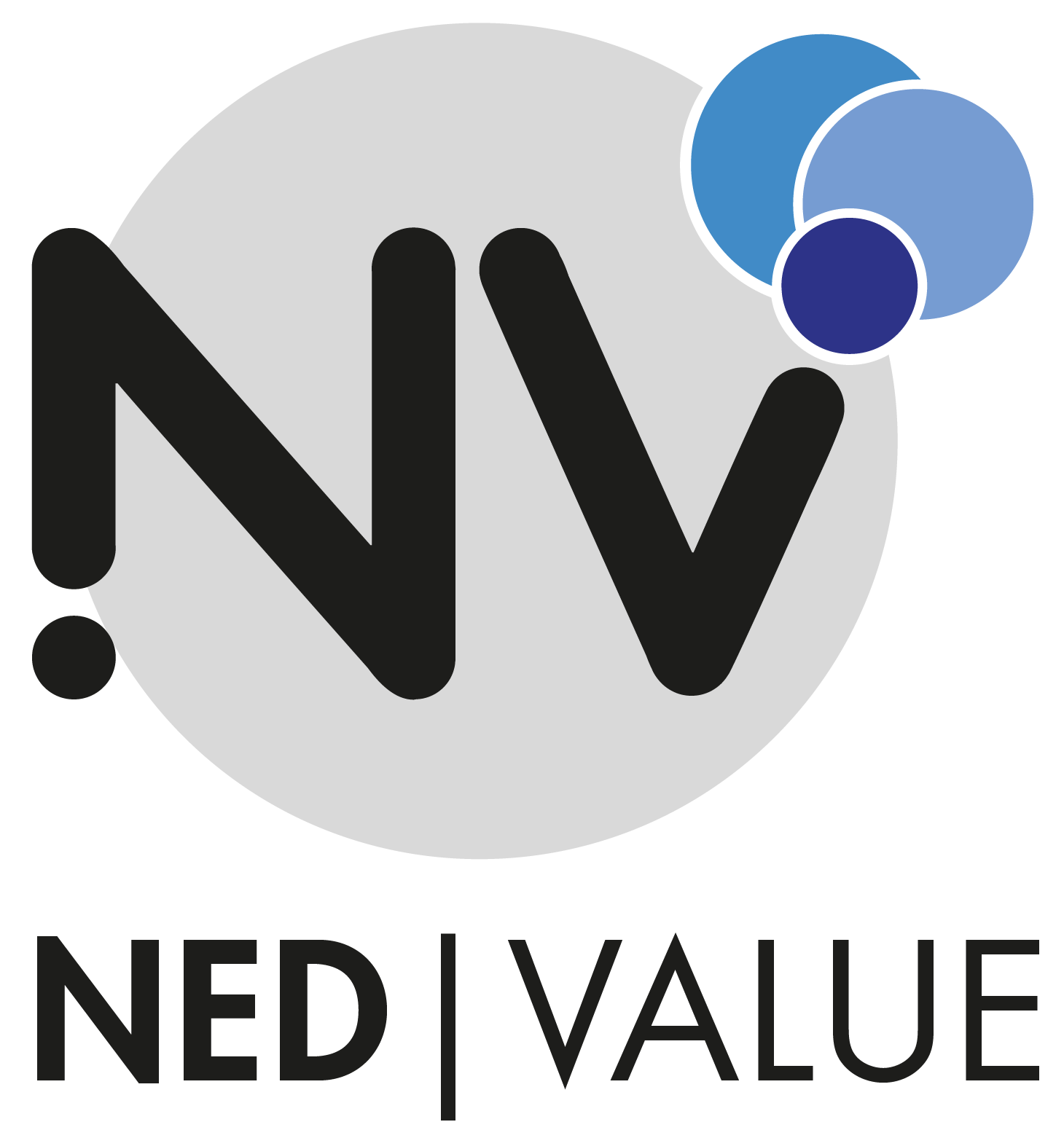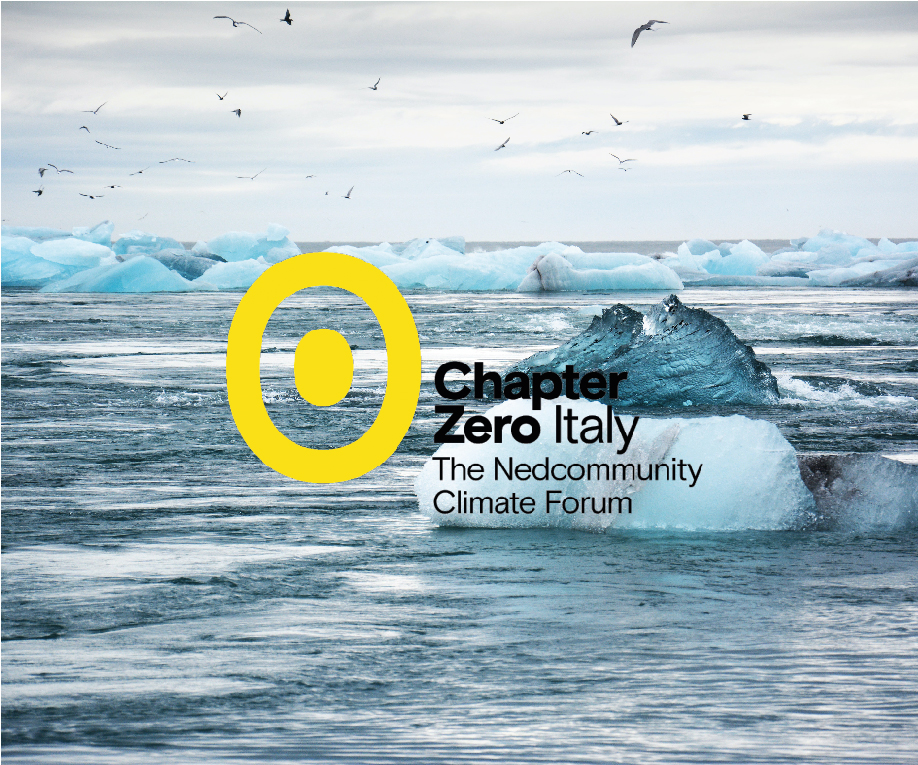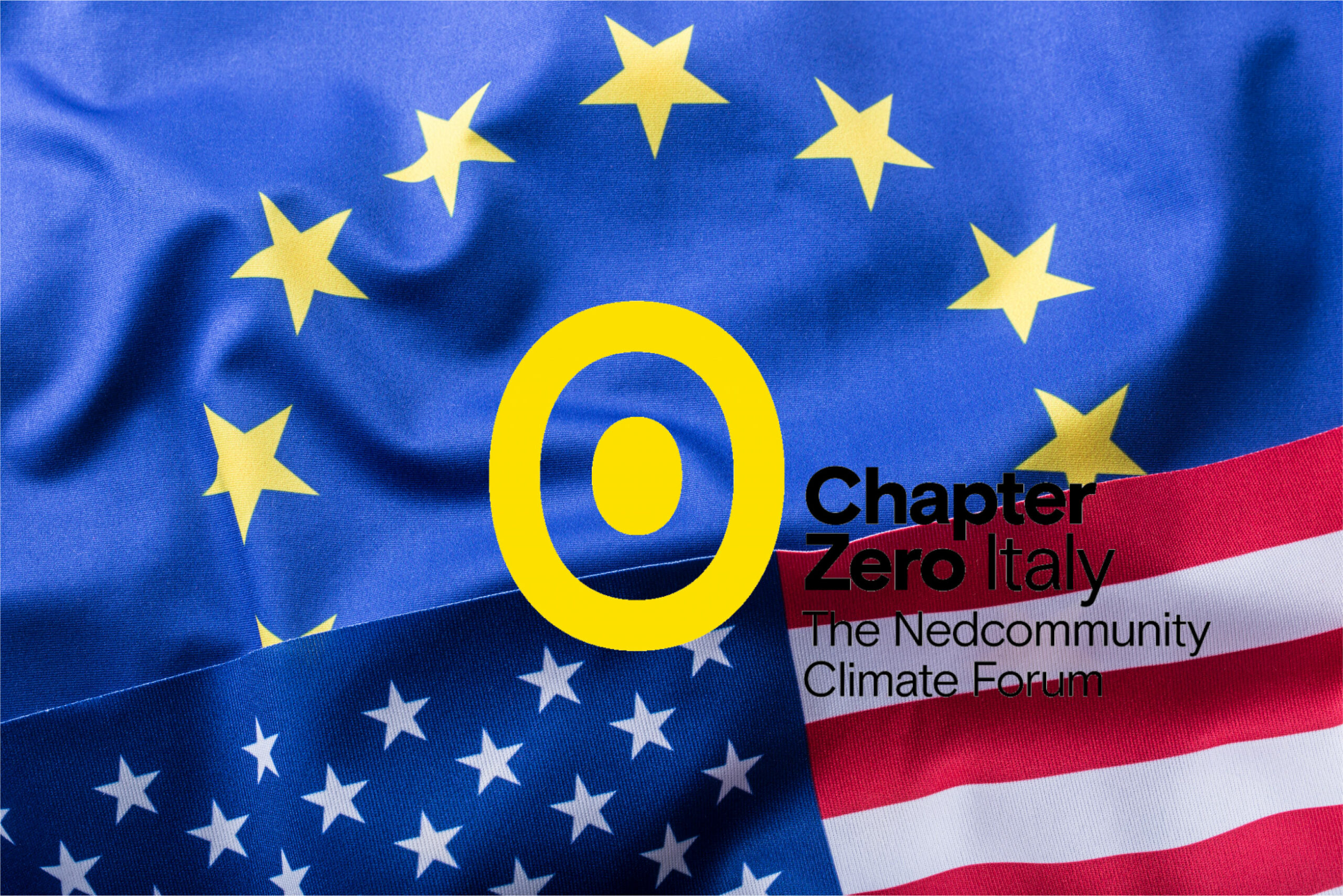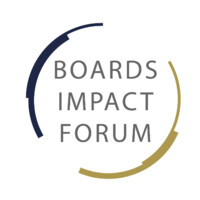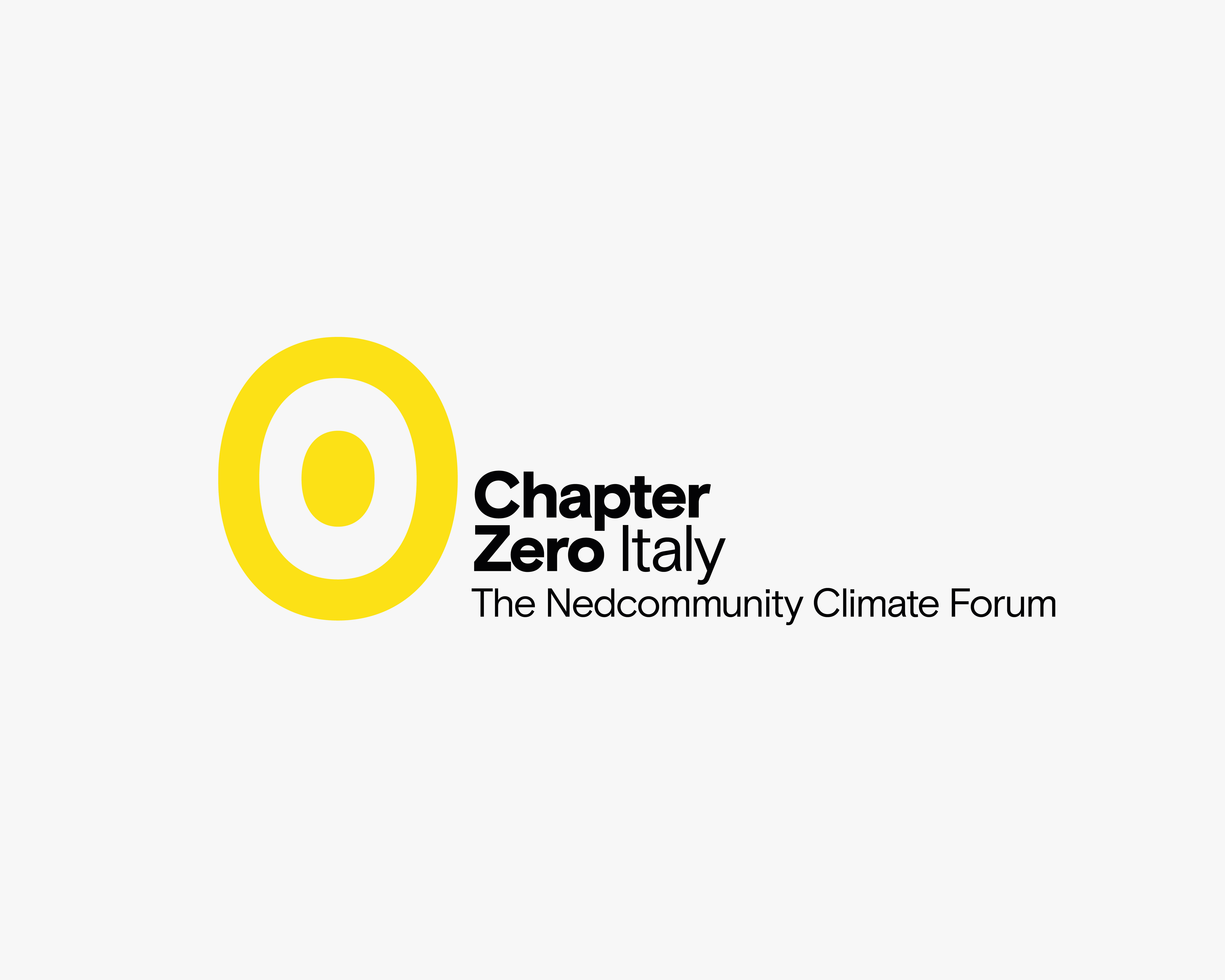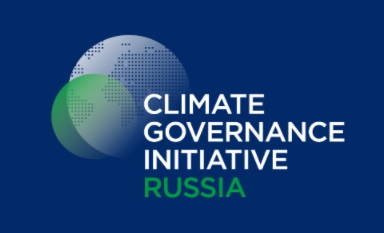Deloitte e Chapter Zero Italy organizzano un evento con testimonianze di primarie aziende quotate italiane su Rischio climatico, processi operativi e pianificazione strategica: come il cambiamento climatico sia entrato nel processi di risk assessment e stia modificando il modo di operare e pianificare, analizzando esempi di settori diversi e portando la prospettiva del Consiglio di Amministrazione.
Per registrarti online CLICCA QUI.
Categoria eventi: Chapter Zero
A view for NEDs: EU&US Climate Policies, Government Officials Forecast Achievable Climate Agendas
Please join us for this international event featuring prominent government officials from Brussels and Washington who will address European and American strategies for achieving Climate goals. Our guest panelists will discuss the aspirations, challenges and “speedbumps” on the road to meeting global climate objectives. This session will be of particular interest to NED’s who want to better understand the policy frameworks that will inform their work in developing and deploying a Climate Governance approach at the Board of Director Level.
To register CLICK HERE
Webinar Board Impact Forum- Changing the Climate in the Boardroom
Cari Associati,
vi segnaliamo l’evento “Changing the Climate in the Boardroom” organizzato da Boards Impact Forum, in collaborazione con INSEAD e Heidrick & Struggles.
Per maggiori informazioni CLICCA QUI
Per registrarti CLICCA QUI
Financial disclosures and the management and integration of climate considerations into reporting: Reviewing the substance behind the reports.
This seminar will give non-executive directors of financial institutions an overview of the climate risk reporting frameworks that exist worldwide. During this interactive workshop, we will focus on the recommendations set by TCFD and the challenges they present for the financial sector. We will also explore best practice in relation to these recommendations. Please note this seminar has limited space and will be capped at 30 participants.
This event will be hosted by Francesca Tondi Guy, former banker, and non-executive director and ESG Committee Chair of UniCredit, with expert contributors:
· Neil Stevenson, Director, Audit & Assurance, Deloitte
· Alan N. Smith, Senior Advisor on Climate and ESG Risk Management, HSBC
To read more about the event, CLICK HERE
To register CLICK HERE
Webinar – Linking Climate Transition and Executive Compensation
“Chapter Zero Italy, in connessione con la preparazione al COP26, invita alla partecipazione al webinar organizzato in partnership con Chapter Zero Malasya e Willis Tower Watson. Durante l’evento verrà presentato il Guidebook “Linking Climate Transition and Executive Compensation” che include anche i risultati di una survey ad amministratori indipendenti promossa da Willis Tower Watson e Climate Governance Initiative del World Economic Forum (di cui Chapter Zero Italy è espressione) e che ha coinvolto più di 100 società quotate, di cui 20 italiane.
L’evento si svolge l’11 novembre in due sessioni con uguale agenda e diversi panelists. Chapter Zero Italy partecipa alla sessione delle 18.00 (CET) con il contributo della nostra associata Silvia Stefini (membro Steering Committee Chapter Zero Italy e amministratore indipendente Italgas e Falck Renewables)
Per registrarti CLICCA QUI
Webinar – Interview with Butch Bacani, Programme Leader at the UN Environment Programme’s Principles for Sustainable Insurance Initiative
Chapter Zero Italy invites you to an Interview with Butch Bacani, Programme Leader at the UN Environment Programme’s Principles for Sustainable Insurance Initiative, on October 4 at 5pm.
Launched in July 2021, the UN-convened Net-Zero Insurance Alliance brings together eight of the world’s leading insurers and reinsurers to play their part in accelerating the transition to a net-zero economy by individually committing to reach net-zero greenhouse gas emissions in their underwriting portfolios by 2050.
To register CLICK HERE.
Webinar – CGI Russia – Board challenges in tackling climate change in Emerging Markets
The Climate Governance Initiative (CGI) Russia in partnership with general partner – Sberbank, London Stock Exchange, Chapter Zero Brazil and Chapter Zero Italy is delighted to invite board members, asset managers, chairs and members of audit and risk committees to take part in the panel discussion “Board challenges in tackling climate change in Emerging Markets” on June, 9 2021 at 3 pm Moscow.
Emerging Market economies continue to take significant strides to establish good corporate governance practices, and have shown improvements in the areas of board independence and long-term stewardship of companies.
Climate change has introduced new challenges for all boards, but presents added complexities for the boards of companies in Emerging Markets.
Once again business resilience is under threat and boards are being challenged to own the business response.
Join our panel to explore how to embed climate considerations into board decision-making and act upon the risks and opportunities that the climate emergency poses to the business success of their companies.
The content of the panel is curated to be relevant to boards of directors enabling them to act upon the risks and opportunities that the climate emergency poses to the long-term resilience and business success of their companies.
Moderator:
Ayuna Nechaeva, Head of Europe, London Stock Exchange (UK)
Speakers:
Silvio Dulinsky
Head of Business Engagement, Latin America, World Economic Forum
Alexander Vedyakhin
First Deputy Chairman of the Executive Board, Sberbank (Russia)
Benedikt Sobotka
CEO, Eurasian Resources Group (Kazakhstan, Africa, Brazil)
Silvia Stefini
Non-Executive Independent Director, Italgas and Falck Renewables, Steering Committee Chapter Zero Italy (Italy)
Tarcila Ursini
Independent Board Member, Grupo Korin and Independent Board Member, Sustainability and People Committees, Agrogalaxy SA (Brazil)
Fan Fu
President, CEO, China Pacific Insurance Co., Ltd. (China)
To register CLICK HERE.
Cross Chapter Communication of Events
Please do keep adding your Chapters’ events in your respective tab (quella al link sotto dopo google sheet) and I will circulate them on a fortnightly basis.
Events coming up in May:
- 5th May at 5:30 CET or 12:30 (UTC+8): Climate and Sustainability Ambitions of our Trading Partners
From Climate Governance Malaysia, click here for more information and registration. - 10th May at 9:30 CET: Exploring the role of carbon offsetting in the transition to net zero: education for board members
From Chapter Zero, the UK Chapter, open to all and click here for more information and registration. - 12th May at 15:00 CET: Scenario Planning and Climate Change Resilience
From Chapter Zero, the UK Chapter, open to all and click here for more information and registration. - 13th May at 10:00 CET: The Role of the Banking Industry in Facilitating Climate Change Mitigation and the Transition to a Low-Carbon Global Economy
From CGI Russia, open to all and click here for more information and registration. - 19th May at 14:00 CET: The Role of the Board, Energy transition and the harder-to-abate sectors: Emily Farnworth in conversation with Adair Turner
From Chapter Zero, the UK Chapter, open to all and click here for more information and registration. - 25th to 27th May: 5th Annual Oxford Business Law Blog Conference
Business Law and the Transition to a Net Zero Carbon Economy, for more information click here.
Events from the week past:
- From Chapter Zero, the UK Chapter: Biodiversity: Understanding Nature-Related Risks and the Economic of Biodiversity.
- From Chapter Zero Mexico: Low Emission Technologies: the development of our energy’s future.
FEEM Webinar | Reshaping the scores: what happens when an ESG rating changes its scoring methodology?
Stakeholders’ attention towards the relationship between firms’ financial performance and their environmental, social and governance (ESG) performance is progressively increasing, leading analysts and operators to rely always more on ESG rating providers. However, as time passes by and firms and financial markets develop, significant changes occur to data providers as well. Recently, a key rater has rewritten its ESG ratings, generating important and retroactive implications for researchers and investment professionals. For this reason, Florian Berg, Kornelia Fabisik and Zacharias Sautner in the research article “Rewriting History Il: The (Un)Predictable Past of ESG Ratings” attempted to measure the impact of such changes on tests that connect ESG ratings to stock returns. The webinar aims to provide an in-depth commentary of the article, offering the stakeholders valuable insights to interpret ESG data and related research outcomes. Speaker: Kornelia Fabisik, Assistant Professor, Frankfurt School of Finance and Management.
Discussant: Simone Chelini, Head of ESG and Strategic Activism, Fideuram-lSPB Asset Management SGR
Presenter: Riccardo Christopher Spani, Researcher, Fondazione Eni Enrico Mattei
This webinar is part of the FEEM/DeRisk-CO project, which aims at stimulating a debate on the importance of assessing and disclosing climate-related risks and opportunities and their impact on financial performance, with a particular focus on Italian businesses.
To register CLICK HERE
Webinar – 25/03/2021 – Food, Fashion and Innovation Industries: How and When to Reach Carbon Neutrality?
Climate related impacts on the medium- and long-term oblige food and fashion industries, amongst others, to reconsider their strategy to maintain productivity and sales levels. While, the innovation industries may offer technical solutions, available for all sectors, to reduce GHG emissions.
Join this roundtable to discuss the experiences of industry leaders and their journey to carbon neutrality.
Agenda
Moderator
Diana Verde Nieto, Co-founder of Positive Luxury
Andrea Illy, Chair Illycaffè
Lavinia Biagiotti Cigna, Chair and CEO Biagiotti Group
Edgar Tung, COO Esquel Group
Emanuela Trentin, CEO Siram-Veolia
To register Click HERE.

